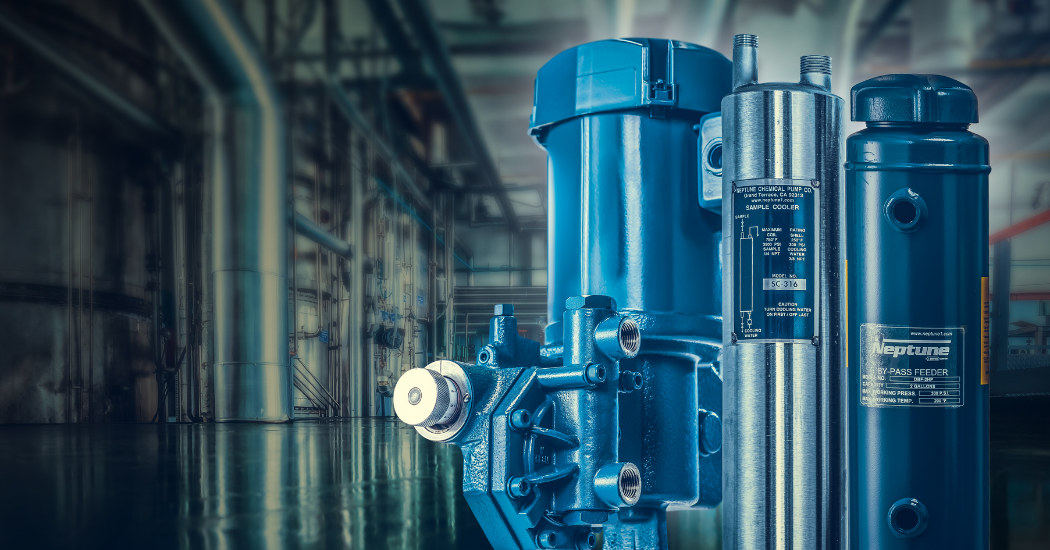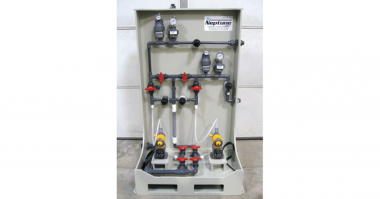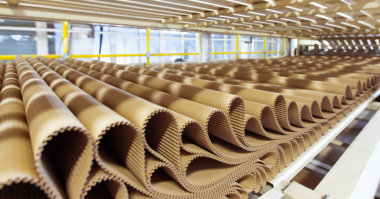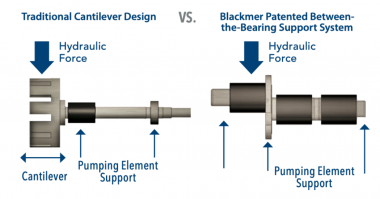Selecting the right metering pump is key to effectively handle boiler-water treatments
Introduction
The function of a boiler is simple. It boils water to produce steam, which in turn provides energy. While this is a straightforward process, there are complexities within it that could affect the boiler’s integrity. The primary concern is the quality of the water.
It might not seem like it, but even high-quality water contains impurities, which has the potential to create problems for the boiler’s functionality. Over time, chemical impurities in the water could damage a boiler’s internals, leaving solid deposits, such as corrosion, rust or scale as the steam evaporates. These accumulated deposits could eventually thermally insulate the boiler’s heat-exchanger surfaces, reducing the boiler’s rate of steam generation and may eventually cause the equipment’s metals to fail. Without proper treatment, corrosion, rust and scale may l eventually lead to thermal failure, reduced boiler efficiency and a potential boiler failure.
The boiler isn’t the only thing that may be affected by untreated feedwater. Aside from the boiler internals, the corresponding safety equipment and auxiliary piping may also suffer the effects of water chemicals and impurities. Addressing the quality of the feedwater becomes imperative. Otherwise, the damage to the boiler and associated equipment may shorten their longevity and increase capital expenditures.
That’s why a boiler-water treatment plan is highly recommended to keep a boiler operating at a high and efficient level. Boiler-water treatments neutralize or remove impurities and chemicals in feedwater to help ensure proper and effective functionality, as well as boiler longevity.
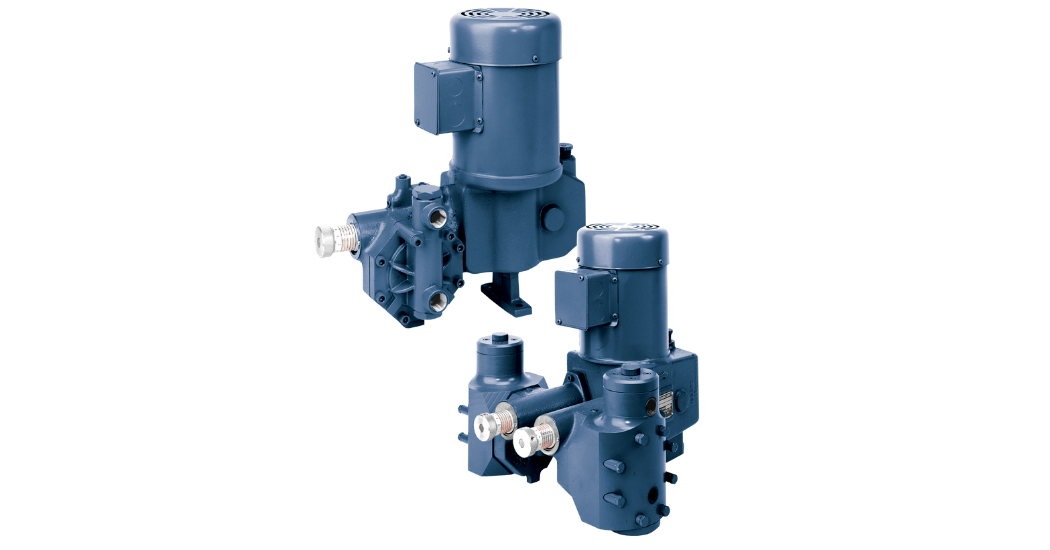
Because chemical injections are delicate processes that require precision, metering pumps serve as a viable option for effective boiler-water treatment.
Common challenges
Common water contaminants are magnesium, calcium, iron, aluminum and silica, all of which can be found in hard water and result in hard deposits when heated. Heated hard water serves as the primary source of scale in boilers. Scale buildup can reduce water flow in pipes and can prevent the efficient transfer of heat in boilers.
Corrosion stems from dissolved oxygen and carbon dioxide in water. These gases attach to the walls of the boiler, piping and other equipment. Eventually, these gases may eat away at the metals within the equipment, causing corrosion, weakening the system. The weakened pieces are susceptible to cracks and other damage that can severely impact the boiler.
Without chemicals
Tackling these common challenges is best done through boiler-water treatment, of which there are several options. One option does not require the use of chemicals. The two approaches under this method are using filters and softeners to remove chemicals, and preheating the water ahead of its entry into the boiler.
Sediment filters are designed to remove suspended solids in water, while water softeners remove magnesium, calcium and other impurities that cause hard water, which can result in scale buildup.
The second approach is preheating the feedwater before it enters the boiler. This process helps remove dissolved oxygen from the water, making it less harsh on the internals of the boilers and associated equipment. Preheating the water usually occurs in a feedwater tank or a deaerator using supplementary steam.
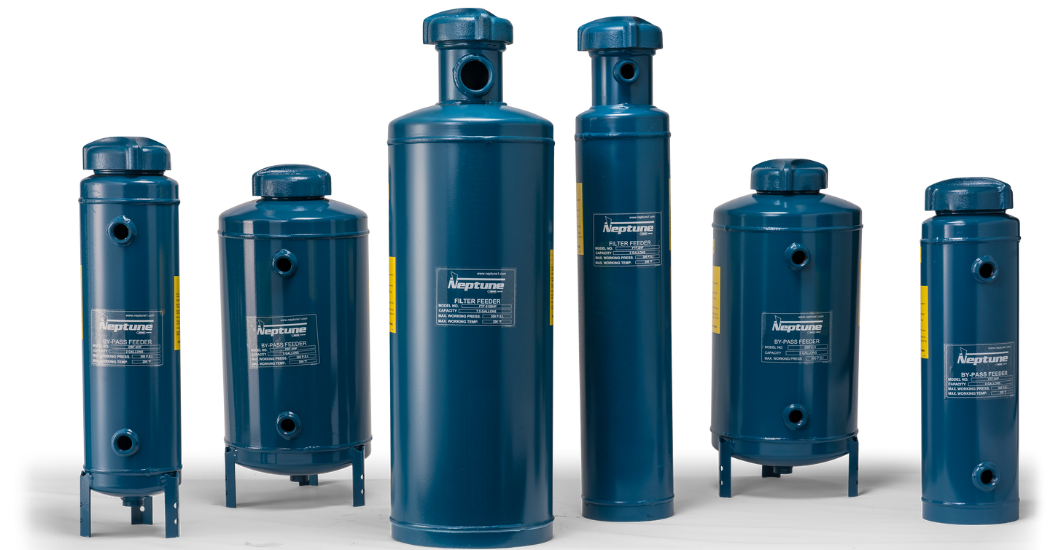
Operating as a single piece of equipment that can inject water-treatment chemicals while also acting as a filtration device, filter feeders continue to gain consideration for boiler-water treatment because of this dual functionality.
The chemical approach
Using chemicals to treat feedwater is an effective method for handling impurities, yet the amounts must be dispensed properly and accurately. Too much of a chemical treatment may adversely impact the quality of the water, which could damage the boiler. Operators must be able to identify the right chemicals and then dispense them carefully.
Chemicals have a variety of functions when it comes to boiler-water treatment. Some are designed to maintain desired pH levels to minimize the water solubility, while others are used to absorb oxygen so it can’t cause corrosion.
There are four common chemicals used to treat feedwater used in boilers – coagulants, phosphates, oxygen scavengers and chelants.
Coagulants are chemicals that make suspended particles in the feedwater flocculate or clump together. The clumped impurities, which take the form of sludge, pass through the water and sink to the bottom of the boiler. Operators typically use a boiler blowdown procedure to remove the sludge. Ferric chloride or hydrated potassium aluminum sulfate (alum) are the coagulants used in boiler-water treatment.
The downside of coagulants is the sludge that accumulates at the bottom of the boiler is corrosive and can still damage the boiler. Phosphates, such as sodium phosphate, are a way to combat this. Phosphates control the pH level in the water, as well as in the sludge, keeping corrosion at bay.
Another corrosion culprit is oxygen, which is why oxygen scavengers are a chemical option used to remove it from water. Oxygen scavengers include hydrazine and sodium sulfite. Lastly, chelants, such as nitrilotriacetic acid (NTA) and ethylenediaminetetraacetic acid (EDTA), are used to form ions with magnesium and calcium in the water to prevent scale buildup. Chelants are specialized molecules that can bind to positively charged metal ions and prevent them from forming insoluble precipitates.
Metering pumps for proper treatment
Because chemical injections are delicate processes that require precision, metering pumps serve as a viable option for effective boiler-water treatment. The two pumping technologies that work best are hydraulically actuated diaphragm metering pumps and solenoid-actuated diaphragm metering pumps.
Hydraulic metering pumps work for chemical handling because they have a repeatable accuracy of +/- 1%, which makes them ideal for injecting precise and controlled amounts of a chemical. Operators can constantly and consistently dispense the proper chemical amounts without concern. The pump’s diaphragm is also hydraulically balanced, allowing it to operate against higher discharge pressures than a mechanically actuated diaphragm pump.
Additional features for this pumping technology include its robust nature and lifespan, which is designed to last 20 years. These pumps also have an internal relief valve, the ability to inject chemicals at high pressures up to and beyond 4,000 psi (276 bar), automatic control with an electronic stroke control or variable-speed motor and manual control through an adjustable micrometer dial.
Hydraulic metering pumps vary by model, with some having variable oil-bypass adjustment to provide improved valve performance. This oil-bypass adjustment enhances performance by allowing the pump’s valve extra time to seat. These pumps can be constructed from several different materials, such as 316 stainless steel, C-20, PVC and Kynar, all of which can handle a variety of chemicals. To meet certain service requirements, hydraulic metering pumps can also handle being outfitted with several motor configurations.
Solenoid-actuated or electronic metering pumps work well as an economical option for boiler-water treatment. They provide chemical injection for low capacity and low-pressure (less than 2 gph and under 250 psi [17.2 bar]) applications. These pumps have a repeatable accuracy of +/- 3%, with some having stroke rates of 300 strokes per minute or higher, allowing for improved chemical injection at low flow rates. Many of these pumps can also operate at any single-phase voltage from 94 to 264 Vac and are unaffected by voltage fluctuations.
The pump’s composition tends to be 316 stainless steel, PVC or Kynar pump heads; Viton or PTFE seals; PTFE diaphragms; and 316 stainless steel and ceramic or PTFE check valves. These materials give these pumps versatility for several chemical injection applications during boiler-water treatment.
Solenoid-actuated pumps also have several models with a manual frequency adjustment or speed control for stroking speed. Some models even have frequency adjustment and stroke-length adjustment, allowing for large turndown capabilities.
The case for filter feeders
Filter feeders are an option that continues to gain consideration for boiler-water treatment because of their dual functionality. They operate as a single piece of equipment that can inject water-treatment chemicals while also acting as a filtration device by capturing the coagulated solids and impurities that cause rust, corrosion and scale.
Filter feeders use a filtration bag that captures nearly all contaminants, even those that are as small as one micron, which is five times smaller than the width of a human hair. These bags can also be disposed of after they are full, instead of being cleaned and used again, which can reintroduce captured particles back into the system.
Conclusion
While there are multiple ways to help ensure the integrity of feedwater for boilers, the most reliable method involves chemical treatments using metering pumps or filter feeders. These options provide tangible results that help maintain the boiler’s optimal functionality and health throughout its lifespan.
About the Authors:
Tim Fagan is a Product Specialist for Neptune™. He can be reached at 215-699-8700 or Tim.Fagan@psgdover.com. Dustin Wong is a Product Specialist for Neptune. He can be reached at 909-512-1257 or Dustin.Wong@psgdover.com. Eulis Ester is a Product Specialist for Neptune. She can be reached at 909-222-1310 or Eulis.Ester@psgdover.com. Based in Grand Terrace, CA, USA, Neptune is a leading manufacturer of chemical-metering pumps, chemical-feed systems, and chemical injection accessories. Neptune is a product brand of PSG®, Oakbrook Terrace, IL, USA, a Dover company. PSG is comprised of several leading pump companies, including Abaque™, All-Flo, Almatec®, Blackmer®, Ebsray®, em-tec, EnviroGear®, Griswold®, Hydro Systems, Mouvex®, Neptune™, Quattroflow™, RedScrew™ and Wilden®. You can find more information on Neptune at psgdover.com/Neptune and on PSG at psgdover.com.

